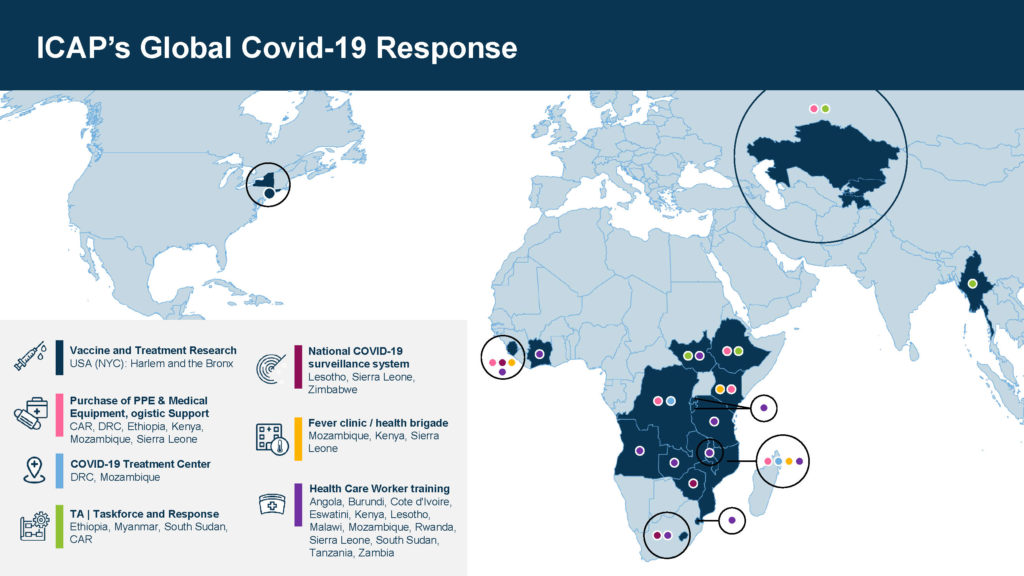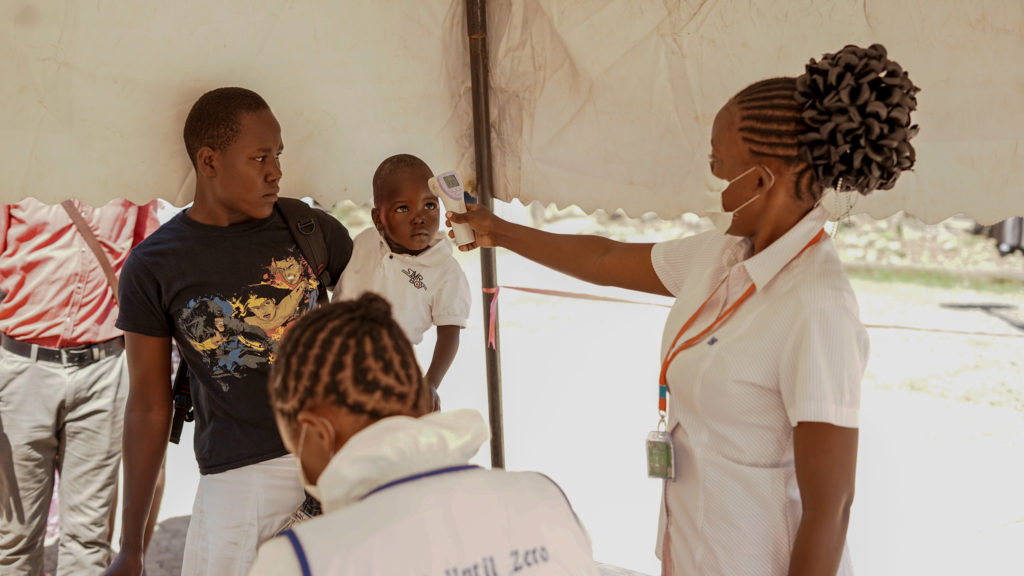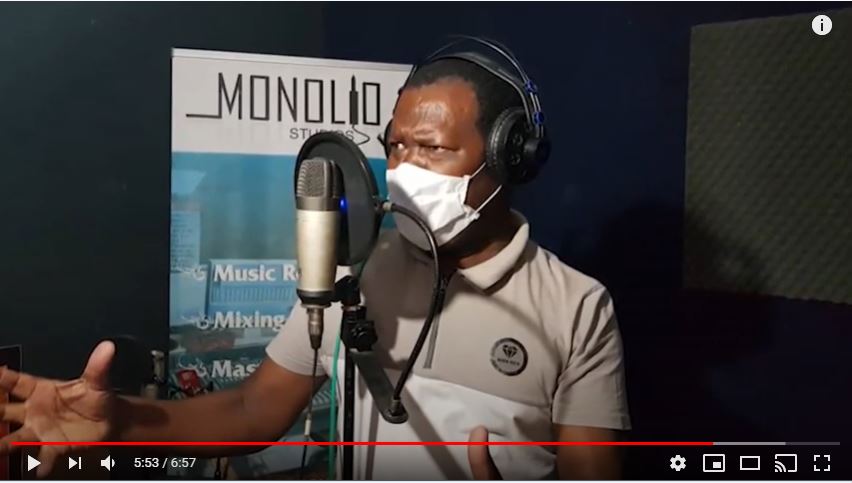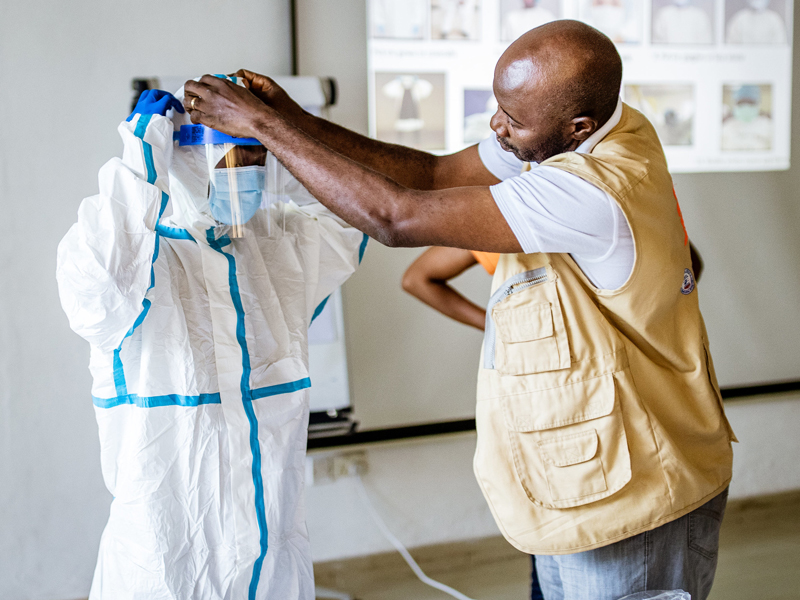“When COVID-19 emerged, we realized that we had to pivot to quickly mobilize the resources needed in order to respond to the urgent calls for assistance that we were receiving.” — Wafaa El-Sadr, ICAP Director
Since the first evidence of the coronavirus pandemic earlier this year, ICAP at Columbia University recognized the potentially devastating impact of COVID-19 in many of the countries where it works, countries where health systems are particularly fragile. Building on nearly two decades of experience in responding to the world’s most significant public health challenges and harnessing its longstanding partnerships with ministries of health across the globe, ICAP has mounted a comprehensive response to COVID-19 in 24 countries in Africa, Asia, and the Americas in partnership with stakeholders in each of the countries.
With $20 million in funding raised through relentless efforts and a mandate to act quickly in the face of a dangerous and rapidly spreading disease, ICAP directed its teams and these resources to create firewalls of detection, prevention, and response to stand between the spreading virus and the communities in its path.

(Click here to view map large)
Leading and Managing the Response
From the earliest days of the pandemic, ICAP began acting to meet the urgent need for nationwide coordination and access to information, both critically important to meeting the COVID-19 threat effectively. In close collaboration with ministries of health from Angola to Sierra Leone to Zimbabwe, ICAP field teams worked to support the setting up of national command centers and data dashboards, and introduced innovative virtual approaches to maintaining strong health care systems in the face of the dramatic challenges presented by the pandemic.
With distancing measures imposed in most regions, ICAP adapted the robust health information management systems it helped build before the pandemic to enable government officials to monitor their health facilities remotely and address gaps in performance that could make all the difference in controlling the spread of the virus.
At the same time, ICAP worked to help bolster the capacity of ministries of health to monitor, evaluate, and track the spread of COVID-19 and address hot spots where transmission rates are high. For example, in Zimbabwe, ICAP has developed an electronic health record system for COVID-19 to screen returning residents at all ports of entry into the country and transmit the data directly to the national health information system to enable health officials there to trace suspected COVID-19 cases among travelers coming into the country
To further facilitate communication and coordination in these countries, ICAP teams have taken advantage of readily available commercial technologies — including WhatsApp, Zoom, and text messaging — to meet the urgent need to connect the range of individuals and organizations that must work together, from ministry of health officials and health facility staff to international assistance agencies and community groups.
“In a health emergency of this magnitude, there is no time for delay. We need to take what’s at hand and adapt it to meet the needs of communities and ensure continuity of health services. This kind of innovation and resourcefulness is an ICAP hallmark and our ability to improvise and meet the emergency without delay is making a difference,” said Sarah Matemu, acting country director of ICAP in Tanzania.
Reinforcing Frontline Workers
With frontline health care workers facing serious risks every day, ICAP has ramped up training efforts in more than a dozen sub-Saharan Africa countries to familiarize doctors, nurses, and community health workers on infection prevention and control protective measures as well as providing up-to-date information on the diagnosis and management of COVID-19 cases.
In a matter of weeks from the beginning of the pandemic, ICAP launched training programs in 16 countries including Angola, Burundi, Côte d’Ivoire, Eswatini, Ethiopia, Kazakhstan, Kenya, Lesotho, Malawi, Mozambique, Rwanda, Sierra Leone, South Africa, South Sudan, Tanzania, and Zambia. Between May and June, ICAP in Mozambique trained 450 master trainers, health care workers, and community outreach workers to identify potential cases and triage care; prevent infections of health care workers and patients seeking services at health facilities; maintain essential health services; and communicate to their patients and communities about the risks of COVID-19.
“These trainings are critical to protecting our precious health workforce and their patients from COVID-19,” Dr. Mame Toure, MD, MsC, country director of ICAP in Sierra Leone, where 300 frontline health care workers from seven high-volume health facilities across the country have already received training.

Securing Protective Equipment
Health facilities in many countries lack the proper equipment for the safe and effective clinical management of a highly infectious disease such as COVID-19. To address this shortage, ICAP secured hundreds of thousands of masks, gloves, face shields, and other protective equipment for health workers in more than a dozen countries. In addition, ICAP has procured and distributed medical diagnostic and treatment devices of particular relevance to COVID-19 – including pulse oximeters, thermometers, and respirators – to health facilities across Africa and Asia.
Responding to the pandemic has also required restructuring health services in order to appropriately manage individuals with symptoms consistent with COVID-19. ICAP immediately moved to address the emergency, working hand-in-hand with partners on the ground in setting up fever clinics and triage centers in Mozambique, Kenya, and Sierra Leone to ensure that health facilities were prepared to meet the potential surge in cases that would be coming through their doors.
At the Jaramogi Oginga Odinga Teaching and Research Hospital (JOOTRH), a major regional health facility in Kisumu, Kenya that ICAP has long supported, ICAP teams set up triage tents to screen people for fever, travel history and other COVID risk factors, and introduced handwashing stations with soap and sanitizer for all patients and hospital staff to protect against infection.
“It’s quite a daunting time for frontline health providers here as well as for members of the community,” said Doris Naitore, capacity building advisor for ICAP in Kenya. “The requests for further support from the hospital keep increasing, but the equipment and services we have made available are providing essential safeguards against transmission of the disease.”
Getting the Word Out
Reaching out to communities directly is critical in order to provide accurate information, address myths and misconceptions and overcome stigma associated with COVID-19. In Sierra Leone, ICAP has launched mobile health brigades mobile health brigades to bring critical information and services closer to communities and individuals through a combination of “pop-up” venues in open spaces, tents, and mobile clinics. To form the brigades, ICAP has collaborated closely with the ministry of local community leaders, and health facility staff using WHO and CDC resources to quickly develop locally appropriate COVID-19 communications materials. All community brigade staff received training on infection prevention and control (IPC) and protective gear to ensure the health and safety of clinical staff.
Meanwhile, in Zimbabwe, ICAP introduced a creative strategy to get the word out, producing an awareness song – “Apart/Together – We Stand Strong Against COVID” – with renowned Zimbabwean musicians Albert Nyathi and Dereck Mpofu. The song’s inspiring tune carries informational messages to encourage communities to follow public health guidelines and combat the pandemic.

Advancing the Science
ICAP is also playing a key role in furthering the knowledge regarding COVID-19. Working at its two community-based research sites in New York City – the Harlem Prevention Center and Bronx Prevention Center – ICAP is participating in various studies for the prevention and treatment of COVID-19.
At both sites, ICAP is part of a study to determine whether convalescent blood plasma from those who have recovered from COVID-19 can be used to prevent infections or treat those with the disease. Both centers are also participating in a study to understand better how the body reacts and recovers from SARS-CoV-2 infection among individuals who had prior disease. And on the prevention front, ICAP is participating in several fast-track vaccine development projects that are already showing encouraging results in early stages. Both research sites will participate in phase 3 studies of these vaccines. Importantly, vaccine research opportunities will also be expanded to Eswatini, where ICAP has extensive research experience.
Protecting the Health Gains Achieved
One of the great fears associated with the COVID-19 pandemic is its potential spillover effect. It is anticipated that as a result of COVID-19 related disruption, there is likely to be a alarming increase in deaths among persons living with HIV as well as resurgence of preventable childhood illness due to pausing of immunization campaigns. Modeling by the World Health Organization estimates that, if efforts are not made to mitigate and overcome interruptions in health services and supplies during the COVID-19 pandemic, a six-month disruption of antiretroviral therapy could lead to more than 500,000 additional deaths from AIDS-related illnesses, including from tuberculosis, in sub-Saharan Africa in 2020–2021. In the face of this mounting emergency, ICAP has worked diligently to secure supplies of medications for HIV and services for pregnant women and children in a host of countries dealing with both HIV and COVID-19.
“Five months into this pandemic that has wrought havoc around the world, ICAP’s work is helping keep many communities safe and helping point the way to bringing COVID-19 under control,” said El-Sadr. “With so much at stake, we are working at full pitch and will not rest in our efforts to stem the tide of this pandemic and to support the communities in its path.”
ICAP’s response to the COVID-19 pandemic is supported by funding from the President’s Emergency Plan for AIDS Relief (PEPFAR), the US Centers for Disease Control and Prevention (CDC); the National Institutes of Health (NIH): CDC Foundation; Amazon; Resolve to Save Lives; Chevron; Bristol-Myers Squibb; Becton, Dickinson and Company; and individual philanthropists.
——————————–
A global health leader since 2003, ICAP was founded at Columbia University with one overarching goal: to improve the health of families and communities. Together with its partners—ministries of health, large multilaterals, health care providers, and patients—ICAP strives for a world where health is available to all. To date, ICAP has addressed major public health challenges and the needs of local health systems through 6,000 sites across more than 30 countries. For more information about ICAP, visit: icap.columbia.edu.








